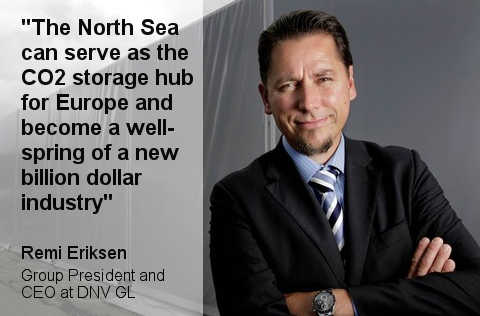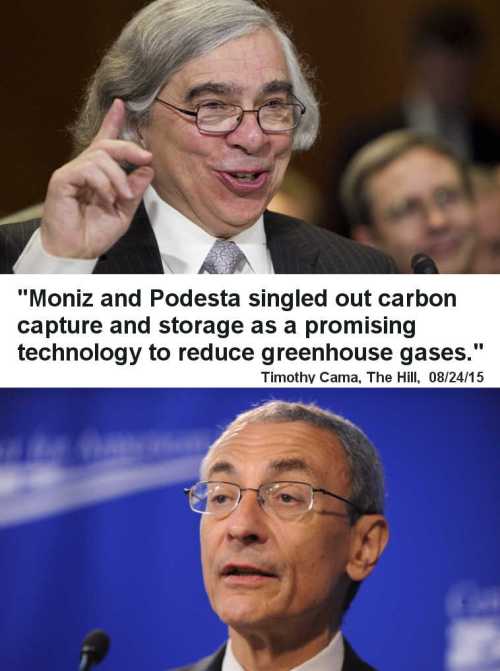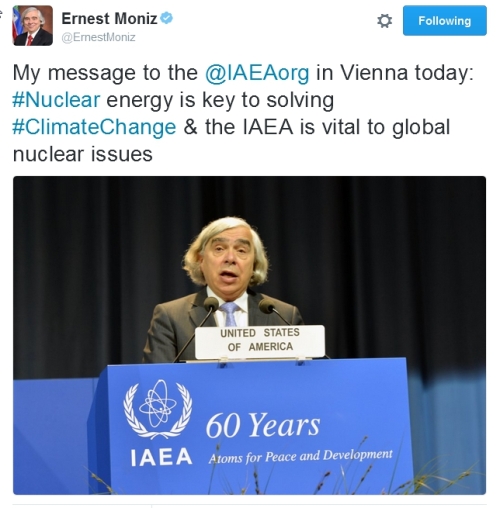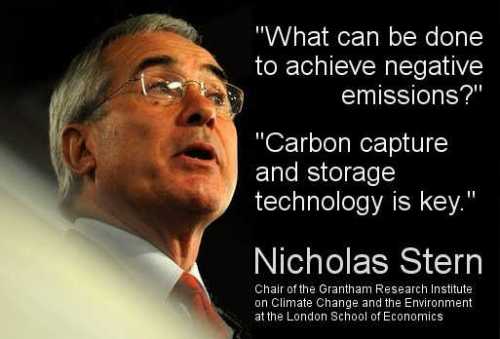Nov 14
20161
Friends of the Earth, United Nations
"Clean Energy" #keepitintheground AFL-CIO Al Gore Behavourial Change Biomass Bob Costanza carbon bubbles carbon budgets carbon capture and storage Catherine McKenna CERES-WE MEAN BUSINESS Christiana Figueres Climate Project COP22 David Roberts Friends of the Earth George Monbiot Grantham Institute James Hansen Jeremy Corbyn Language Nicholas Stern nuclear energy Podesta psywar stranded assets unburnable carbon UNFCCC US Department of Energy
“Clean Energy” is a Dirty Joke
November 14, 2016
By Michael Swifte
“Clean Energy” is a rhetorical device of unprecedented scope. A poorly defined but effective shield for any pundit, mouthpiece or messaging agent to use when speaking of a seemingly uncertain energy future. “Clean Energy” has given its name to many formal processes, organisations, and campaigns. Our climate leaders use the term when they talk about targets, and renewables, and “low carbon” futures. And for whatever it may signify “clean energy” does have a Wiki page, but (at the time of writing Nov 14, 2016) it is unpopulated and redirects you to the Sustainable Energy Wiki page.
As someone who is hellbent on finding a way to destroy fossil fools there is one thing that is certain, this juggernaut will not rest till it’s all gone. That’s how fossil fools have always played their cronyistic, monopolistic, deeply networked game. That’s how I look at motive and likelihoods.
When I discovered that some of the very same people who were presenting the most popular arguments for why we should #keepitintheground were also paving the way for carbon capture and storage I began asking questions about the development of this particular form of energy generation. Questions like: Why would organisations that are telling us about carbon bubbles, carbon budgets, unburnable carbon, and stranded assets be supporting the continued burning of gas, coal, and trees, and the expansion of geological storage of CO2 under the North Sea in old oil and gas fields owned by Shell and Statoil? Surely they care about ending the destruction?
I quickly realised I was asking the wrong questions. I shouldn’t be asking why, I should be asking how? How do fundamentally economic concepts like unburnable carbon, stranded assets, and carbon budgets work for the inevitable continuation of fossil fuel extraction and the wholesale destruction of forests? How much political will for carbon capture and storage is out there and how is it expressed? How are pundits, mouthpieces or messaging agents able to use “clean energy” to mask their support for energy that is in no way clean?
It’s impossible to answer these questions without going on the journey to understanding how conflated logics and rhetorical devices appear, are transmitted, and express themselves in language. This is the very heart of psychological warfare, the understanding of the spread and power of particular logics, and how the management of information, it’s architecture and the imperatives behind it’s production facilitates mass deception and behaviour change.
My broad methodology for understanding the messaging sphere and comprehending the logical underpinnings of key pieces of language is this: follow the money, interrogate the messaging, and analyse the networks.
LEADERS – Politicians, corporate executives, high level public servants and UN chiefs
This is my messaging interrogation methodology for leaders: When I hear a leader use the term “clean energy” I compare that to the policy, technology, and investment objectives for which they speak, vote, develop networks, and maintain silence.
Here are some very stark examples:
US Department of Energy, Research and Development webpage has “CLEAN ENERGY R&D” emblazoned at the top, near the bottom of the page is carbon capture and storage, and nuclear energy. US Energy Secretary Ernest Moniz has publicly thanked Senator Whitehouse for bringing forward a new bill aimed at providing tax credits for carbon capture utilisation and storage projects ( I’ll go into more detail later). Key projects funded by the US DoE involve CO2 scrubbed from coal-fired plants being used for enhanced oil recovery projects where CO2 is sequestered. Moniz has also publicly echoed James Hansen’s belief in nuclear energy as a key to “solving climate change”.
Jeremy Corbyn talks a big “clean energy” game, but he also voted in support of the pro carbon capture and storage policies Labour took to last year’s election. He once talked about reopening coal mines saying in an early interview
“The last deep mine coal mines in South Wales have gone but it’s quite possible that in future years coal prices will start to go up again around the world and maybe they’ll be a case for what is actually very high quality coal, particularly in South Wales, being mined again.”
In that same interview he responded in favour of CCS hinting at cost as a downside
“It’s complicated. At one level it looks very expensive but the advantages also look quite attractive”.
Of course he has since disingenuously distanced himself from his remarks about returning to coal mining saying “It was one question about one mine, I’m not in favour of reopening the mines.”
Canada’s environment minister Catherine McKenna stated in May this year that Canada’s carbon capture and storage projects were a
“real opportunity for Canada to export solutions” and made her support absolutely clear saying “So when you have carbon capture and storage, that’s certainly an innovative solution — a made-in-Canada solution,”
Compare those statements with her remarks at the Canada 2020 conference November 20, 2015, “And we’ll support progress in clean energy—because innovations in our energy sector can be commercialized, scaled up and exported. Done right, this will create good middle class jobs, grow our economy and reduce pollution, including greenhouse gases.”
.
In my blog post of May, 2015 ‘The Climate Chief, the Summit, and the Silence’ I highlighted how then Executive Secretary of the United Nations Framework Convention on Climate Change, Christiana Figueres, in a Q & A session as part of the 2nd annual Australian Emissions Reduction Summit, derailed a question on “draw down” of CO2 (presumably through agricultural soil sequestration) to speak in favour of carbon capture and storage investment. I noted the absence of responses from the commentariat. One of the few organisations to take note of the climate chief’s words was called CO2-CRC a carbon capture and storage research project which is chaired by former Australian energy and mining minister Martin Ferguson. CO2-CRC are currently pumping sequestered CO2 under the Ottway Ranges in Victoria, Australia. Another organisation to take note (they actual used a meme I created without giving credit) was SaskPower CCS, the most advanced coal-fired CCS project on the planet.
NON-LEADERS – Journalists, NGO and think tank spokespeople, celebrity spokespeople
Leaders represent institutions, corporations and political processes that impact on material change in the world. Non-leaders deal with ideas and supposed facts, and in essence seek to shape thinking for the better as they are paid to conceive it. As a representative of a media institution or a non-profit entity non-leaders are compelled to steer certain talking points, and observe relationships and platforms developed and defended by their particular institution or entity. Pointing out the contradictions between rhetoric and reality is simple, but if pointing out those contradictions helps to unpack or highlight an issue then non-leaders will largely ignore the contradictions, avoid unpacking the issue, and avoid engaging in meaningful discussion. Non-leaders with significant reach and networks are pivotal to the dissemination of talking points, conflated logics, and rhetorical devices.
My messaging interrogation methodology for non-leaders goes like this: When I read a piece from a key pundit/commentator/mouthpiece working with a media entity, think tank, or NGO I look for adherence to particular talking points and conflated logics. Most authors have sets of talking points suffused with conflated logics passed on to them through the media and through their networks of allies and affiliations. My provisional assumption when reading a piece is that the author is not inclined to fully unpack an issue lest they stray into uncovering some inconvenient truths. Avoiding certain talking points signifies to me that the author would rather not give credence to those talking points. Silences are created by failing to speak to significant talking points. Silence is the hardest thing to identify and the most challenging component of messaging interrogation.
Non-leaders in the media employ what I call attending behaviour in avoiding certain talking points and triggers for unpacking inconvenient ideas and information. For the attending non-leader it’s all about speaking to an issue without really opening it up, not being utterly silent, erecting a defensible position which makes any real challenger seem petty.
Lets look at two non-leaders from the media, George Monbiot at The Guardian, and David Roberts at Grist and Vox.
Here’s a quote from a recent piece by Monbiot where he recognises the reality of increased demand for negative emissions and the role envisaged by many for CCS as a solution, then dismisses it – hyperlink to a story about last year’s cancelled 1 billion pound CCS competition in the UK.
“The only means of reconciling governments’ climate change commitments with the opening of new coal mines, oilfields and fracking sites is carbon capture and storage: extracting carbon dioxide from the exhaust gases of power stations and burying it in geological strata. But despite vast efforts to demonstrate the technology, it has not been proved at scale, and appears to be going nowhere. Our energy policies rely on vapourware.”
Reading this for the first time sent my head into a spin. Monbiot appears to be arguing that CCS would be alright if it worked. I tweeted Monbiot a bunch of memes with quotes which got the attention of the International Energy Agency, Green House Gas Research and Development Program Twitter account.
Here’s a quote from a recent piece by Roberts called ‘No country on Earth is taking the 2 degree climate target seriously’.
“What is clear is that we are betting our collective future on being able to bury millions of tons of carbon. It’s a huge and existentially risky bet — and maybe one out of a million people even know it’s being made.”
In making his assertions on the state of political will for mitigation technologies like CCS, Roberts cites an obscure UNFCCC report from the Subsidiary Body for Scientific and Technological Advice titled: ‘Report on the structured expert dialogue on the 2013–2015 review’ It’s one hell of a document, I could sense that the delegates were drooling over the idea of pulping forests. Roberts is right in his conclusions about political will for bio-energy with carbon capture and storage (BECCS) and CCS, but – here’s where the attending behaviour kicks in – including a hyperlink to a document doesn’t constitute unpacking the political will. Not when the title of your article refers to inaction from countries, and countries have politicians who are on record giving their support for carbon capture and storage investment. There are any number of documents, links, and names he could have shared that would have revealed the punchline, but he didn’t. We can’t say he didn’t attend to the subject, but we can’t say he smashed that pinata.
Roberts’ article is ostensibly a response to a report released by Oil Change International (OCI) in September this year titled THE SKY’S LIMIT: WHY THE PARIS CLIMATE GOALS REQUIRE A MANAGED DECLINE OF FOSSIL FUEL PRODUCTION.Roberts introduces the themes of “cognitive dissonance” and “psychological schism” at the state of the collective response to climate change. He then presents the OCI article stating “This cognitive dissonance is brought home yet again in a new report from Oil Change” Indeed the OCI report written with “collaborators” that you could only call “the usual suspects” (climate cartel) elicits cognitive dissonance for the sheer number of qualified statements on CCS in the context of carbon budgets. The phrase “in the absence of CCS” and other similar phrases appear on more than half a dozen occasions. The below quote summarizes the position of the world’s leading green groups on carbon capture and storage.
“If CCS is eventually proven and deployed, it might provide a welcome means of further lowering emissions.”
In the end the OCI authors cite prudence as the most important consideration.
“However, we take the view that it would not be prudent to be dependent on an uncertain technology to avoid dangerous climate change; a much safer approach is to ensure that emissions are reduced in the first place by reducing fossil fuel use and moving the economy to clean energy. Therefore, we apply that assumption throughout this report.”
My feeling about David Roberts who is a colleague of Bill McKibben at Grist.com is that his job is to postulate on the things Bill McKibben can’t (lest he be compelled to unpack). While I agree with the earlier quote and recognise that I am probably one of those “one out of a million people”, I find it concerning that David Roberts can comprehend that we are indeed “betting our collective future” on carbon capture utilization and storage, but not attend to who and what constitutes the political will. I’ve formed the opinion over time that David Roberts conforms to the same remit and talking points as Bill McKibben, and that he has permission to go as close as possible to the hard limits without triggering the unpacking of political will.
There is an endless array of non-leaders from think tanks and NGOs that we could explore, but lets look at someone who has piped up and finally given a clear message about investment in the lead up to COP22.
Nicholas Stern chairs the Grantham Institute for Climate Change and the Environment. This is the research institute/think tank that I alluded to earlier when I explained what set me off on the journey of discovery into how fossil fools are manufacturing continued demand. While I have been watching Grantham and their allies closely for the last 3 years, it was only recently that I was able to find a quote from the horse’s mouth (Stern) that was succinct enough to share. The following quote is from a speech given at The Royal Society on October 31, 2016. It’s a very telling quote because it comes from an entity that promoted and repeatedly supported the divestment movement as well as hashtags/campaigns like #keepitintheground, and yet it clearly pushes for investment in CCS as a negative emissions technology.
“What can be done to achieve negative emissions? Carbon capture and storage technology is key.”
Here it is in meme form. Feel free to share it.
GRUNT WORK
Here’s a quote from The Principles of Psywar by Jay Taber. I’ve worked to these two fundamental principles since I first read them.
“The first principle of psywar is never repeat the talking points of your enemy. The second principle is to deny them a platform to misinform.”
I’ve found these principles are great for maintaining the discipline of staying on-message during difficult discussions and developing a more succinct communication style.
Applying these two principles has given me stamina and strengthened my resolve. Grunt work requires hours of immersion in deflating, boring, and propaganda riddled content. My enemies are manufacturing hope, and funding every avenue that leads to new people, cultures, and markets to co-opt. But I can be realistic about the enormity, pervasiveness, and shape of the enemy because I have a strategy against their constant destabilising tactics.
Grunt work is the true revolutionary work.
FEEBLE RESISTANCE
Putting up feeble resistance is a way of manufacturing silence. This is precisely what is happening this year in the US with critical pieces of legislation introduced to congress seeking to facilitate the growth of the carbon capture and storage sector with a particular interest in CO2 enhanced oil recovery (EOR). Here I will discuss two pieces of complimentary legislation that have received bipartisan support, support from industry, support from the Natural Resource Defense Council, and support from one of the largest union organisations in the US, the AFL-CIO. Both bills seek to modify provisions in the Emergency Economic Stabilization Act of 2008 (bail out). I will show that the resistance is barely even visible. NGOs who claim to represent workers and/or the environment, organisations like the Labor Network for Sustainability have barely even acknowledged the existence of these new bills.
When Republican congressman Mike Conaway presented his bill the Carbon Capture Act in February 25, 2016 Brad Markell, Executive Director of the AFL-CIO’s Industrial Union Council had this to say as part of a “diverse coalition” which included Arch Coal, Peabody Coal, and Summit Power.
“CCS is absolutely critical to preserving good-paying jobs in manufacturing and industrial and energy production, while reducing the environmental footprint of these activities. The financial incentives in this legislation will also support much-needed construction jobs as we build projects and infrastructure for CCS. Representative Conaway has proposed a win-win for our economy and environment.”
Markell’s colleague D. Michael Langford, National President, Utility Workers Union of America, AFL-CIO had this to say on the same press release.
“There are few real examples of technology that are both good for the economy and good for the environment. Carbon capture technology is one true example. Incentives to develop and deploy carbon capture will have a positive effect on our economy while at the same time, reduce greenhouse gas emissions. A permanent extension of tax credits for Section 45Q of the Tax Code will be essential in building a twenty first century economy that provides large numbers good paying jobs while addressing environmental concerns.”
I challenged Joe Uehlein, Founding President of the Labor Network for Sustainability (LN4S) and former AFL-CIO strategist to put the position of LN4S forward in response to AFL-CIO support but his response was flat, defensive, and not worth posting. It wasn’t until Democrat Senators Whitehouse and Heitkamp introduced their bill, the Carbon Capture Utilization and Storage Act, that the resistance went from virtually nothing to slightly more than nothing.
Senator Whitehouse’s press release announcing the introduction of his bill neglects to mention coal based carbon capture or CO2 based enhanced oil recovery. Instead the focus is put on non fossil fuel based processes like industrial water treatment and algae biomass projects. This is also the theme he lead with on social media as you can see from the below image.
This is when Friends of the Earth US stepped in with a letter to congress calling the 45Q tax credit amendments for which both bills were created, a CO2-EOR subsidy. The closing sentence of the letter highlights that it’s not coal based carbon capture and storage or even the storage of CO2 in old oil reservoirs that FoE US and the long list of cosignatory NGOs (photo below) are taking issue with, but the purported increase in oil that can be recovered.
“Enhancing oil recovery is not a climate solution. Neither is further subsidizing the oil industry. In fact both are a step in the wrong direction. That is why we ask you to oppose any attempts to extend or expand the Section 45Q tax credit.”

There are more than 30 co-signatory NGOs to the FoE US letter but when they went to social media it all fell flat. None of the usual cross promotional back patting and content sharing that allied NGOs are well known for happened.

INFORMATION ARCHITECTURE AND NETWORKED STRUCTURES
There is a global group called the Clean Energy Ministerial (CEM) which holds forums, events and discussions for energy ministers and secretaries. Within this arrangement there is the Carbon Sequestration Leadership Forum, this is where the real “clean energy” action happens. Below is a screen grab from the Carbon Capture Use and Storage page of the CEM website which you should have a look at. If you do you will see that details of their position on CCUS is buried away. Similar structuring-out exists in the US for the Clean Energy States Alliance which leaves the definition of “clean energy” to be determined by the vagaries of energy infrastructure development and regulation for each state.

DEMAND FOR NEGATIVE EMISSIONS TECHNOLOGY

COP22 will deliver “clean energy” finance and climate finance. The punchline to the dirty joke has been protected. Senior editors, NGO trustees, impact philanthropists, and senior bureaucrats all know how to guide inquiry away from the no go zones. They know that the worth of everyone who works under them is contingent on their ability to discern the dog whistles and self censor.
MITIGATION TRADING
While nations struggle to implement carbon taxes and emissions trading schemes new CCS projects have developed that when the time comes will be able to demonstrate that they have the capability to sequester carbon at scale. Australian economist Allan Kohler theorised that the Australian Emissions Reduction Fund, Safeguard Mechanism could represent a “proxy ETS”. It could come to pass that the Gorgon Gas Project which began sequestering CO2 under Barrow Island off the coast of Western Australia this year could retrospectively claim a subsidy for their efforts. Will Australia in the near future use this sequestered carbon to satisfy their climate commitments?
The city of Rotterdam has put itself forward as a future CO2 export hub and the Teesside Collective industrial decarbonisation project still claim they are “leading the way in low carbon technologies”. Remi Erikson, CEO of DNV GL clearly thinks that a North Sea CO2 storage hub is bankable.
Another meme to share.

Storage capacity for CO2 has been successfully commodified before any kind of discussion about the international agreements that are meant to cover activities like undersea storage have even happened. The London Protocol and Convention which is administered by the International Maritime Organisation is not ready to manage the development of undersea storage, and the maritime area managed by OSPAR Commission north of the Atlantic has permitted under sea storage in the North Sea at Norway’s Sleipner field. OSPAR are very supportive of investment in carbon capture and storage. Here’s a quote from the Quality Status Report 2010.
“Capturing carbon from combustion at source and transporting this to sub-seabed geological reservoirs could help mitigate climate change over century-long time scales and thus help with the transition to a lower carbon economy.”
THE SHOW WILL GO ON
I tried to find the source for the proliferation of “clean energy” as a pivotal propaganda term. Looking at the list of attendees at the 2009 Getting to 350 conference was very enlightening. Lewis Milford who heads up the Clean Energy States Alliance was there as was James Hansen who advocates nuclear over renewables. Members of Al Gore’s Climate Project were there along with ecological economist Bob Costanza and the nuclear and carbon capture spruiking Jesse Jenkins.
I found the likely source of “clean energy” by digging into the Podesta emails and following the trail back to 2006 and the Clinton Global Initiative Annual Meeting (link has already disappeared) where Podesta was championing the “Clean Energy Investment Boom”. The Clinton Global Initiative had a key role in bringing 350.org to global prominence. Podesta recently sat down with US Energy Secretary , Ernest Moniz and I’ll let the meme tell you what they both agreed on.

New US president? Makes little difference. There was no ‘war on coal’. The clean power plan was never clean. “Clean Energy” has paved the way for the financing of carbon capture utilization and storage as critical to the development of our energy systems, and fundamental to the decarbonisation of industry.
Let’s give Al Gore the last word $$$$$$$$$






































